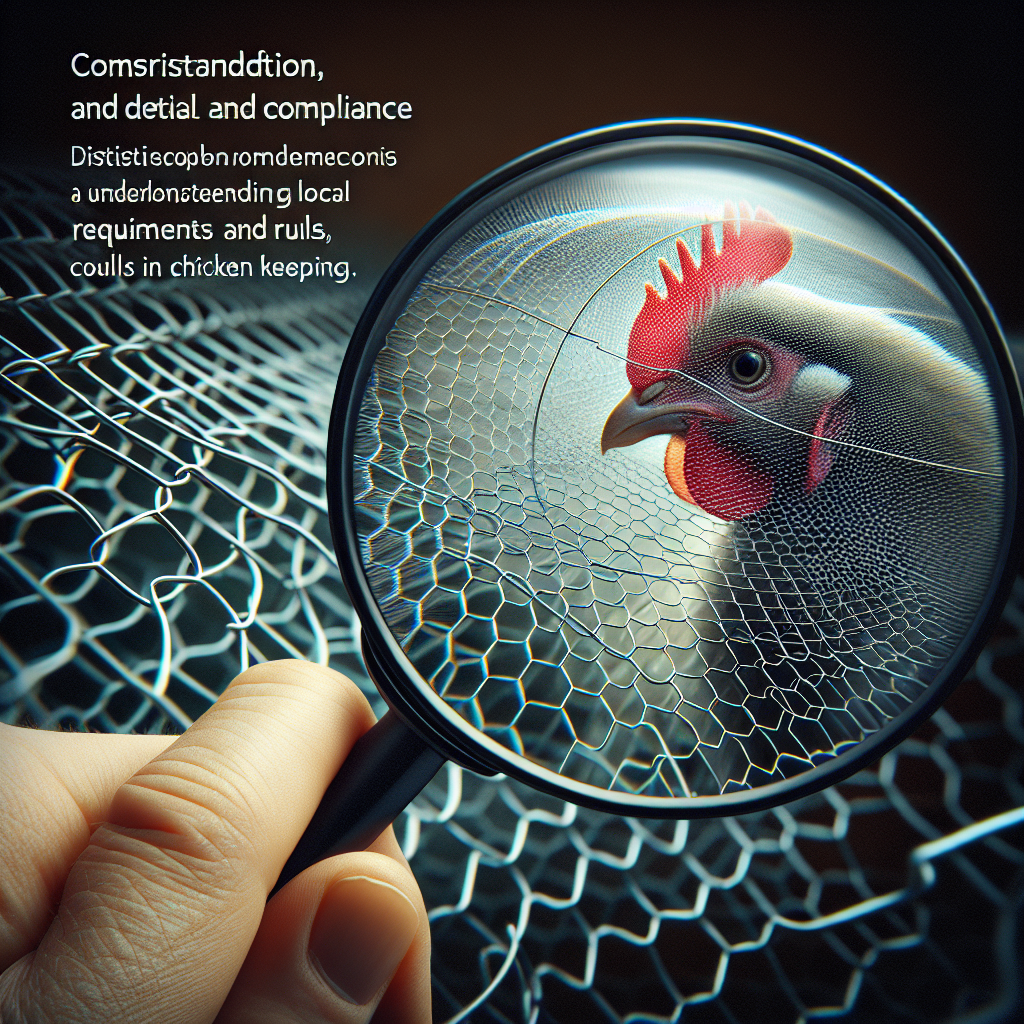Starting a chicken flock can be an exciting and rewarding venture, but before you jump in, it’s important to understand the initial costs and investments involved. From acquiring the necessary equipment and supplies to purchasing the chickens themselves, there are several factors to consider. In this article, we will explore the various expenses you’ll likely encounter when starting a chicken flock, allowing you to make informed decisions and set realistic expectations for your new endeavor. Whether you’re a seasoned farmer or starting from scratch, understanding the initial costs is an essential step towards building a successful chicken flock.
Choosing the Right Chicken Breed
When starting a chicken flock, one of the first decisions you need to make is choosing the right chicken breed. There are many different breeds to choose from, each with its own unique characteristics and traits. Some breeds are better suited for egg production, while others are known for their meat quality. Some are more docile and friendly, perfect for a backyard flock, while others are more adventurous and can handle free-ranging. It’s essential to consider your specific goals and needs when selecting the right breed for your flock.
Housing and Equipment
To provide a safe and comfortable environment for your chickens, you’ll need to invest in appropriate housing and equipment. The following sections will outline the necessary components:
Chicken Coop
A chicken coop is the primary shelter for your flock. It should be sturdy, well-ventilated, and predator-proof. The coop should have enough space for your chickens to roam around comfortably and provide roosting space for them to perch at night. Additionally, consider incorporating windows or vents to ensure adequate airflow.
Nesting Boxes
Nesting boxes are essential for your hens to lay their eggs. These boxes should provide a quiet, dark, and cozy space to encourage egg production. Aim to have at least one nesting box per four to five hens.
Feeders and Waterers
Invest in high-quality feeders and waterers that are both durable and easy to clean. Adequate access to fresh food and water is crucial for the health and well-being of your flock.
Brooder Setup
If you plan on raising chicks, you’ll need a brooder setup. A brooder provides a warm and safe environment for the chicks until they are old enough to join the adult flock. It includes a heat source, bedding material, and appropriate space to accommodate the young chicks’ needs.
Heat Lamps
Heat lamps are essential to maintain the proper temperature in the brooder. Chicks require a consistent heat source until they are fully feathered and able to regulate their body temperature effectively.
Chickens and Chicks
When it comes to acquiring chickens or chicks for your flock, there are several considerations to keep in mind:
Chick Purchases
You can acquire chickens or chicks through various sources, such as local hatcheries, feed stores, or reputable breeders. Research different sellers, read reviews, and choose a source that offers healthy, well-cared-for birds.
Chick Transport or Delivery
If you’re purchasing chicks, they will require special transportation to ensure their safety and well-being. Most reputable sellers will take precautions to provide adequate ventilation, warmth, and hydration during transit. If possible, opt for local purchases to minimize travel time.
Vaccinations and Health Checks
Ensure that your chickens receive necessary vaccinations and regular health checks to prevent diseases. Consult with a veterinarian or an experienced poultry professional to determine the appropriate vaccines for your flock and develop a health care plan.
Feeding and Nutrition
Proper nutrition is vital for the overall health, egg production, and meat quality of your flock. Consider the following aspects when establishing a feeding routine:
Feed
Choose a high-quality chicken feed that is specific to the life stage of your flock. Chicks require a different type of feed than adult chickens, so make sure to provide appropriate nutrition at each stage. Read the labels carefully to ensure that the feed meets the dietary requirements of your birds.
Supplements
In addition to a balanced feed, there are various supplements available to provide essential nutrients to your flock. Calcium supplements, for example, can help improve eggshell quality, while probiotics can support gut health. Consult with a poultry nutritionist or veterinarian to determine the most suitable supplements for your flock.
Grit
Grit, such as small stones or insoluble minerals, aids in the digestion of food in chickens’ gizzards. Provide your flock with appropriate-sized grit to help them break down food effectively. Grit is particularly important for chickens that do not have access to sandy or gravelly areas.
Predator Protection
Keeping your flock safe from predators is crucial for their well-being. Consider the following measures to protect your chickens:
Fencing
A sturdy and predator-proof fence is essential to keep out unwanted visitors. Ensure that the fence is buried at least a foot underground to prevent digging predators from gaining access. Regularly inspect the fence for any gaps or vulnerabilities to maintain its effectiveness.
Netting
Adding netting to your chicken coop or run can provide additional protection against aerial predators such as hawks or owls. Make sure the netting is secure and is of the appropriate size to prevent any birds from getting tangled or trapped.
Lighting
Installing motion-sensor lighting around your coop or run can deter nocturnal predators. Predators are less likely to approach if they are suddenly exposed to bright light. This extra layer of security can give you peace of mind, particularly during nighttime hours.
Egg Collection and Processing
If you’re keeping chickens primarily for eggs, proper egg collection and processing are essential. Pay attention to the following aspects:
Egg Baskets
Invest in egg baskets or trays designed specifically to collect and store eggs. These containers should be clean, sturdy, and well-ventilated. Proper egg storage helps maintain freshness and quality.
Egg Cartons
If you plan to sell or give away eggs, having appropriate egg cartons is necessary. Ensure that the cartons are clean and in good condition, as they reflect the professionalism and quality of your eggs.
Egg Washer
An egg washer is a handy tool for those who have a large number of eggs to clean. While not a necessity for everyone, it can speed up the cleaning process and ensure that your eggs are sanitary.
Health and Veterinary Expenses
Keeping your chickens healthy is crucial for their well-being and productivity. Account for the following expenses when planning your flock’s healthcare:
Veterinary Visits
Regular veterinary visits are essential to monitor the overall health of your flock and identify any potential issues early on. Budget for routine check-ups, vaccinations, and any veterinary services required to maintain optimal flock health.
Medications or Treatments
Occasionally, chickens may require medications or treatments for various health conditions. These can include deworming, parasite control, or antibiotics. Plan for these potential expenses, keeping in mind that prevention is often more cost-effective than treatment.
First Aid Supplies
Having a well-stocked first aid kit specific to poultry can help you address minor injuries or illnesses promptly. Basic supplies such as wound care products, vitamins, and electrolytes should be readily available in case of emergencies.
Marketing and Selling Eggs
If you’re considering selling eggs from your flock, it’s crucial to plan for marketing and distribution. Focus on the following aspects:
Packaging
Invest in proper egg packaging to ensure that your eggs reach customers safely. Consider using cartons, labels, or even customized egg packaging to create a professional and appealing presentation.
Advertising
Consider various advertising methods to promote your eggs locally. Utilize social media platforms, community bulletin boards, or even local farmer’s markets to reach potential customers. Building relationships with local restaurants or bakeries can also create a consistent market for your eggs.
Delivery or Shipping
Determine how you will distribute your eggs to customers. If you plan to deliver locally, invest in reliable transportation and ensure that you have proper insulation for temperature-sensitive eggs. If shipping is necessary, research shipping standards, and use appropriate packaging methods to maintain egg quality during transit.
Labor and Time Investment
Raising chickens requires a significant investment of time and effort. Consider the following labor and time requirements:
Initial Set-Up
Setting up the chicken coop, purchasing equipment, and preparing the brooder requires time and effort. Plan for adequate time to assemble and arrange these components before bringing your chickens home.
Daily Care and Maintenance
Chickens require daily care, including feeding, providing fresh water, and cleaning the coop and run. Allocate time each day for these tasks, taking into account feeding, egg collection, and general flock observation.
Cleaning
Regularly cleaning the coop, nesting boxes, and brooder is essential to maintain a healthy environment for your flock. Schedule regular cleaning sessions to prevent the build-up of waste, which can lead to hygiene issues and potential health risks.
Record-keeping
Maintaining detailed records of your flock’s health, feed consumption, egg production, and expenses is essential for effective management. Set aside time for record-keeping to help you track progress, identify patterns, and make informed decisions for the future.
Unforeseen Expenses
Despite careful planning, unforeseen expenses can arise when raising chickens. Account for the following possibilities:
Equipment Repairs or Replacements
Over time, equipment such as feeders, waterers, or fencing may require repairs or replacements. Budget for occasional maintenance or upgrades to ensure the safety and functionality of your setup.
Emergency Veterinary Care
In the event of an illness or injury within your flock, emergency veterinary care may be necessary. Consider having a contingency fund in case unexpected health issues arise. Prompt veterinary attention can often save lives and prevent further complications.
Starting a chicken flock requires consideration of a wide range of factors, from breed selection to the ongoing care and maintenance of your birds. By carefully considering each aspect and planning ahead, you can create a successful and fulfilling experience as a chicken owner. Enjoy the journey of raising these fascinating creatures and reaping the rewards of fresh eggs, companionship, and the satisfaction of being a part of nature’s cycle.




